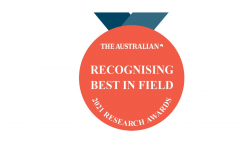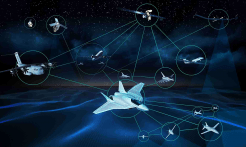The project aims to investigate, model and implement Cognitive Human-Machine Interfaces and Interactions (CHMI2) for trusted autonomous operations in aviation. The project provides opportunities for final year engineering students, masters and PhD candidates to work on next generation avionics and air traffic management systems.
This line of research explores new system evolutions to address the challenges of single-pilot and unmanned operations. In particular, aviation systems are designed to be increasingly intelligent and autonomous to bring about higher levels of operational safety and efficiency. These evolutions will require humans to team up with intelligent machines. The human takes the critical role of decision maker, providing strategic guidance and assuming control if the machine fails to perform as expected. The machine, in turn, is able to recognize when the human needs assistance. It adapts itself to provide relevant and context-aware support in a timely manner.
The CHMI2 project builds trusted autonomy by adapting to the cognitive needs of humans. It monitors human operators to determine their state of fatigue, stress, workload, attention and level of trust. In an unmanned context, trusted autonomy supports ground pilots to manage multiple drones. Students will develop, test and validate the CHMI2 system prototype using specialist equipment in the Autonomous Systems and Human Factors Engineering Laboratory at RMIT’s Bundoora East campus.
The lab hosts aviation equipment including flight simulators and radar controller workstations and is also equipped with neuro-physiological sensors to allow the machines to infer and adapt to the cognitive state of the human operators. According to Professor Roberto Sabatini, Chief Investigator and head of the Intelligent Transport Systems research group, RMIT has established sufficient expertise and research infrastructure to innovate substantially in this domain.
Professor Sabatini’s involvement in various research collaborations with academia, government and industry provides a unique perspective on the research needs of the various stakeholders. “The civil and military aerospace sector is evolving very rapidly – the CHMI2 project will address the human factors engineering needs for next generation aerospace systems.”
Mr Yixiang Lim is a second-year PhD candidate who is currently researching ways to implement CHMI2 in single pilot and unmanned aircraft operations. “I joined the project as a junior member, working with two PhD candidates who have now graduated. The team culture is a vital component in the learning process. I am fortunate to be working in a highly motivated team geared to produce top quality and high impact research. The project has given me the opportunity to shape the future of human factors engineering and to re-define how humans interact with increasingly intelligent and autonomous systems. Through this project I am gaining very valuable engineering skills and industrial exposure which are well-suited to the needs of tomorrow’s employers. I am contributing to world-class research that is creating a new domain of expertise. I can see first-hand how my research gets translated into practical applications.”




